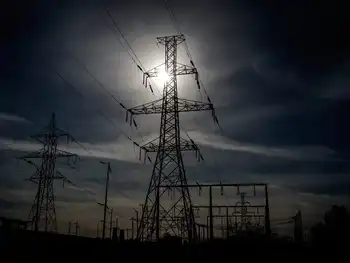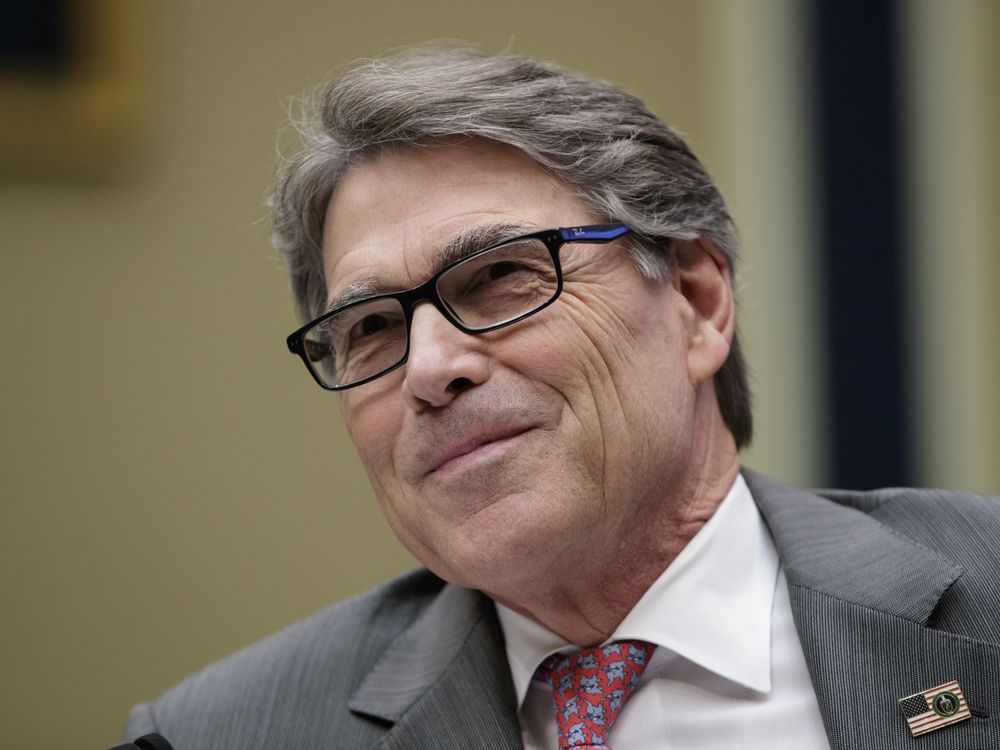COVID-19 Energy Burden drives higher electricity bills as income falls, intensifying energy poverty, utility shut-offs, and affordability risks for low-income households; policy moratoriums, bill relief, and efficiency upgrades are vital responses.
Key Points
The COVID-19 energy burden is the rising share of income spent on energy as bills increase and earnings decline.
✅ Rising home demand and lost wages increase energy cost share.
✅ Mandated shut-off moratoriums and reconnections protect health.
✅ Fund assistance, efficiency, and solar for LMI households.
I have asthma. It’s a private piece of medical information that I don’t normally share with people, but it makes the potential risks associated with exposure to the coronavirus all the more dangerous for me. But I’m not alone. 107 million people in the U.S. have pre-existing medical conditions like asthma and heart disease; the same pre-existing conditions that elevate their risk of facing a life-threatening situation were we to contract COVID-19. There are, however, tens of millions more house-bound Americans with a condition that is likely to be exacerbated by COVID-19: The energy burden.
The energy burden is a different kind of pre-existing condition:
In the last four weeks, 22 million people filed for unemployment. Millions of people will not have steady income (or the healthcare tied to it) to pay rent and utility bills for the foreseeable future which means that thousands, possibly millions of home-bound Americans will struggle to pay for energy.
Your energy burden is the amount of your monthly income that goes to paying for energy, like your monthly electric bill. So, when household energy use increases or income decreases, your energy burden rises. The energy burden is not a symptom of the pandemic and the economic downturn; it is more like a pre-existing condition for many Americans.
Before the coronavirus outbreak, I shared a few maps that showed how expensive electricity is for some. The energy burden in most pronounced in places already struggling economically, like in Appalachia, where residents in some counties must put more than 30 percent of their income toward their electric bills, and in the Midwest where states such as Michigan have some families spending more than 1/5 of their income on energy bills. The tragic facts are that US families living below the poverty line are far more likely to also be suffering from their energy burden.
But like other pre-existing conditions, the impacts of the coronavirus pandemic are exacerbating the underlying problems afflicting communities across the country.
Critical responses to minimize the spread of COVID-19 are social distancing, washing hands frequently, covering our faces with masks and staying at home. More time at home for most will drive up energy bills, and not by a little. Estimates on how much electricity demand during COVID-19 will increase vary but I’ve seen estimates as high as a 20% increase on average. For some families that’s a bag of groceries or a refill on prescription medication.
What happens when the power gets turned off?
Under normal conditions, if you cannot pay your electric bill your electricity can get turned off. This can have devastating consequences. Most states have protections for health and medical reasons and some states have protections during extreme heat or cold weather. But enforcement of those protections can vary by utility service area and place unnecessary burdens on the customer.
UCS
Only Florida has no protections of any kind against utility shut-offs when health or medical reasons would merit protection against it. However, when it comes to protection against extreme heat, only a few states have mandatory protections based on temperature thresholds.
The NAACP has also pointed out that utilities have unceremoniously disconnected the power of millions of people, disproportionally African-American and Latinx households.
April tends to be a mild month for most of the country, but the South already had its first heat wave at the end of March. If this pandemic lasts into the summer, utility disconnects could become deadly, and efforts to prevent summer power outages will be even more critical to public health. In the summer, during extreme summer heat families can’t turn off the A/C and go to the movies if we are following public health measures and sheltering in place. Lots of families that don’t have or can’t afford to run A/C would otherwise gather at local community pools, beaches, or in cooling centers, but with parks, pools and community groups closed to prevent the virus’s spread, what will happen to these families in July or August?
But we won’t have to wait till the summer to see how families will be hard hit by falling behind on bills and losing power. Here are a few ways electricity disconnection policies cause people harm during the pandemic:
Loss of electricity during the COVID-19 pandemic means families will lose their ability to refrigerate essential food supplies.
Child abuse guidance discusses how unsanitary household conditions are a contributing factor to child protective services involvement. Unsanitary household conditions can include, for example, rotting food (which might happen if electricity is cut off).
HUD’s handbook on federally subsidized housing includes a chapter on termination, which says that lease agreements can be terminated for repeated minor infractions including failing to pay utilities.
Airway machines used to treat respiratory ailments—pre-existing conditions in this pandemic—will not work. Our elderly neighbors in particular might rely on medicine that requires refrigeration or medical equipment that requires electricity. They too have fallen victim to utility shut-offs even during the pandemic.
Empowering solutions are available today
Decisionmakers seeking solutions can look to implement utility shut off moratoriums as a good start. Good news is that many utilities have voluntarily taken action to that effect, and New Jersey and New York have suspended shut-offs, one of the best trackers on who is taking what action has been assembled by Energy Policy Institute.
But voluntary actions do not always provide comprehensive protection, and they certainly have not been universally adopted across the country. Some utilities are waiving fees as relief measures, and some moratoriums only apply to customers directly affected by COVID-19, which will place additional onerous red tape on households that are stricken and perhaps unable to access testing. Others might only be an extension of standard medical shut off protections. Moratoriums put in place by voluntary action can also be revoked or lifted by voluntary action, which does not provide any sense of certainty to people struggling to make ends meet.
This is why the US needs mandatory moratoriums on all utility disconnections. These normally would be rendered at the state level, either by a regulatory commission, legislative act, or even an emergency executive order. But the inconsistent leadership among states in response to the COVID-19 crisis suggests that Congressional action is needed to ensure that all vulnerable utility customers are protected. That’s exactly what a coalition of organizations, including UCS, is calling for in future federal aid legislation. UCS has called for a national moratorium on utility shut-offs.
And let’s be clear, preventing new shut-offs isn’t enough. Cutting power off at residence during a pandemic is not good public policy. People who are without electricity should have it restored so residents can safely shelter in place and help flatten the curve. So far, only Colorado and Wisconsin’s leadership has taken this option.
Addressing the root causes of energy poverty
Preventing shut-offs is a good first step, but the increased bill charges will nevertheless place greater economic pressure on an incalculable number of families. Addressing the root of the problem (energy affordability) must be prioritized when we begin to recover from the health and economic ramifications of the COVID-19 pandemic.
One way policymakers can do that is to forgive outstanding balances on utility bills, perhaps with an eligibility cap based on income. Additional funds could be made available to those who are still struggling to pay their bills via capping bills, waiving late payment fees, automating payment plans or other protective measures that rightfully place consumers (particularly vulnerable consumers) at the center of any energy-related COVID-19 response. Low-and-moderate-income energy efficiency and solar programs should be funded as much as practically possible.
New infrastructure, particularly new construction that is slated for public housing, subsidized housing, or housing specifically marketed for low- and moderate-income families, should include smart thermostats, better insulation, and energy-efficient appliances.
Implementing these solutions may seem daunting, let us not forget that one of the best ways to ease people’s energy burden is to keep a utility’s overall energy costs low. That means state utility commissions must be vigilant in utility rate cases and fuel recovery cost dockets to protect people facing unfathomable economic pressures. Unscrupulous utilities have been known to hide unnecessary costs in our energy bills. Commissions and their staff are overwhelmed at this time, but they should be applying extra scrutiny during proceedings when utilities are recovering costs associated with delivering energy.
What might a utility try to get past the commission?
Well, residential demand is up, so for many people, bills will increase. However, wholesale electricity rates are low right now, in some cases at all-time lows. Why? Because industrial and commercial demand reductions (from social distancing at home) have more than offset residential demand increases. Overall US electricity demand is flat or declining, and supply/demand economics predicts that when demand decreases, prices decrease.
At the same time, natural gas prices have set record lows each month of this year and that’s a trend that is expected to hold true for a while.
Low demand plus low gas prices mean wholesale market prices are incredibly low. Utilities should be taking advantage of low market prices to ensure that they deliver electricity to customers at as low a cost as possible. Utilities must also NOT over-run coal plants uneconomically or lean on aging capacity despite disruptions in coal and nuclear that can invite brownouts because that will not only needlessly cost customers more, but it will also increase air pollution which will exacerbate respiratory issues and susceptibility to COVID-19, according to a recent study published by Harvard.
Related News

















